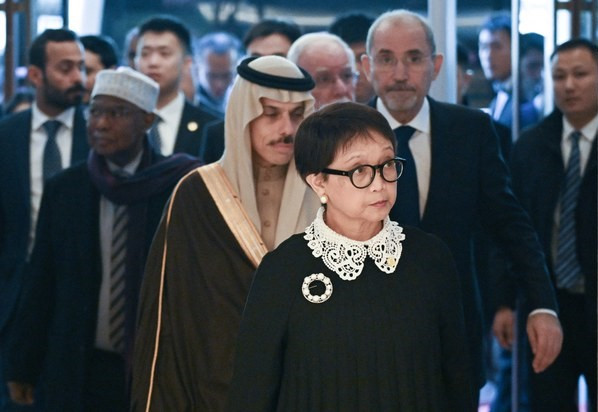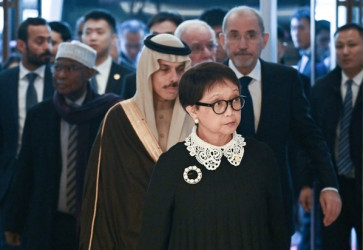Popular Reads
Top Results
Can't find what you're looking for?
View all search resultsPopular Reads
Top Results
Can't find what you're looking for?
View all search resultsMuslim world courts China, Indo Pacific and Middle East merge
One must keep in mind the Gaza conflict's risk of triggering a global conflagration, therefore, the foreign ministers prefer China to hear them out first.
Change text size
Gift Premium Articles
to Anyone
W
hile the phrase "Indo-Pacifique" was coined by Klaus Haushoffer in the 1920s, the concept was largely meaningless. That is if it was not understood within the context of lebensraum (living space). Great powers need living space. Rather, quixotically, not unlike how Israel desires more land.
Thus, notwithstanding that the ideology of living space was used by the Nazis, one must accept that expansionism for the sake of nothing else but this goal of conquest alone can lead to mayhem. When any entity seeks to keep growing, the likes of Edward Luttwark, the author of The Paradox of Strategy, have warned of a definite pushback, militarily or otherwise.
But the truth is nation states, indeed, regions, do need to connect quickly to tamper with the effects of compact globalization that are often without any positive trickle-down effects. Regions must work together to generate more gains from international trade.
The greater the international commerce, with the region being the focal point of most intense commercial activities, the more welfare can then be produced for all to partake in.
Interestingly, the very acuteness of the Gaza issue has made the Middle East and Indo-Pacific region suddenly more integrated than ever. How?
A group of foreign ministers from predominantly Muslim-majority states from the Gulf Cooperation Council (GCC) and ASEAN chose Beijing as their first port of call on Nov. 20. This has never happened before. Usually, they head west before going east.
The above foreign ministers will have seen China as a rising commercial power, which they must work with, even if Gaza is foremost in their minds. Knowingly or otherwise, their visiting Beijing first is also swayed by an important academic debate over the last 40 years, if not longer.


















